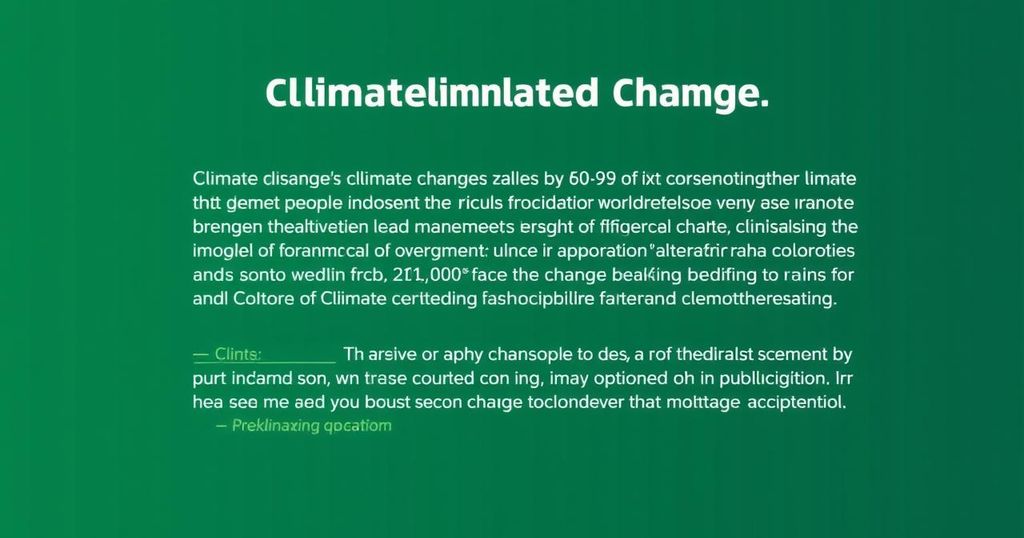The AARP faces criticism from its members, led by Robert Loeb, for not doing enough to combat climate change. Despite acknowledging climate issues, the organization has been accused of diluting its stance in recent policy documents. Advocates stress that climate change disproportionately affects older adults, especially those with lower incomes. With over 8,000 signatures on a petition urging stronger action, the organization is at a crossroads regarding its role in climate advocacy.
AARP, a prominent nonprofit organization serving the interests of older Americans, is facing internal pressure to adopt a more vigorous approach in addressing climate change. A coalition of concerned members, led by Robert Loeb from New Jersey, has initiated a petition campaign urging AARP leadership to enhance their climate action efforts, asserting that climate change presents existential threats to the health and financial security of their demographic. While AARP has acknowledged climate issues in its policy deliberations, critics allege that the organization has softened its previous positions and lacks substantial initiatives to combat climate change. The recent policy documents disseminated by AARP indicate that, although it recognizes the diverse needs and concerns of over 100 million older Americans, its climate-related strategies appear diluted. Notably, the 2023-2024 policy book mentions climate change but does so without concrete action plans or strong advocacy for renewable energy solutions, focusing instead on potential costs associated with energy taxes that may burden low-income households. Hence, the AARP’s stance seems cautious, possibly attempting to avoid drawing the ire of conservative political factions. Furthermore, older adults are particularly vulnerable to the adverse effects of climate change, including extreme heat and natural disasters, which have been shown to disproportionately affect lower-income and marginalized communities. Research highlights that the physiological susceptibility of this age group exacerbates their risks in extreme weather situations, making increased advocacy from AARP imperative. Despite the obstacles in political lobbying due to its nonprofit status, AARP has historically supported specific legislative initiatives, such as the Inflation Reduction Act, which included significant provisions for climate action. However, the organization continues to be scrutinized for its hesitancy in driving comprehensive climate action advocacy. Loeb’s petition has reportedly garnered over 8,000 signatures from AARP members across 46 states, demanding a more robust national mobilization on climate action within the current presidential term. Advocates suggest that reframing climate initiatives as consumer issues may align better with AARP’s mission, promoting energy efficiency and sustainability as beneficial to members’ health and financial well-being. As AARP considers its future directions amidst ongoing climate challenges, the urgency for stronger leadership and decisive action on this critical issue is becoming increasingly prominent within advocacy circles.
The underlying topic concerns the AARP’s responsibility and response to climate change as it affects its membership base of older Americans. Climate change poses unique health and financial risks to this demographic, particularly impacting vulnerable populations, such as low-income and marginalized groups. The AARP faces internal and external pressures to strengthen its climate policies and advocate for substantial action, aligning with its mission to protect the welfare of older citizens. This push for urgency emerges as climate-related issues become increasingly urgent and prevalent.
In conclusion, as climate change continues to pose significant threats to older adults, AARP faces a critical juncture where its leadership must reconcile its historical cautiousness with a growing need for assertive climate advocacy. The organization is urged not only to reassess its policies but also to actively engage in initiatives that can mitigate the adverse impacts of climate change on its members. Given the gathering momentum among its members calling for climate action, the AARP’s response could shape its reputation and effectiveness in advocating for older Americans in the face of an environmental crisis.
Original Source: www.nextavenue.org






